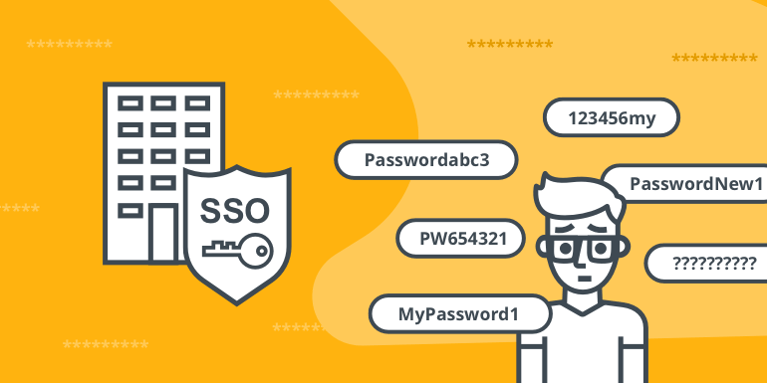Why all scheduling software needs privacy, security and SSO (Single Sign On)

The vast amount of personal information stored and shared online today makes individuals vulnerable to identity theft, fraud, and various forms of cybercrime. Protecting sensitive data, such as financial details or personal records, is essential to safeguard individuals from potential harm and financial losses.
In an interconnected world where data is constantly flowing, transmitted and stored across networks, ensuring security helps prevent unauthorized access, hacking, and data breaches that can compromise the integrity of individuals, organizations, and even national security. Privacy is equally important as it safeguards an individual's right to control their personal information, preventing unwanted surveillance, data mining, and targeted advertising.
Maintaining security and privacy in the digital age is essential to foster trust, protect individuals' rights, and uphold the integrity of online systems and services.
When we first became accustomed to making use of the internet, we were greeted with a vast ocean of opportunities and possibilities that served to enrich, entertain and astound. Naturally, however, there is a downside to everything in life and the world wide web, with its wealth of resources, is no different.
Creating digital spaces that are useful and safe has turned out to be a bigger problem than anticipated and with the rise of cyber attacks and malpractice constantly on the agenda, we need to take any measure we can to ensure that we are navigating spaces and making use of applications in ways that bear the least risk possible. On the other hand, passwords and security measures constantly prove to be a persistent problem for developers, as they’re often forgotten and require assistance to retrieve or reset.
This is in large part why Apple has made such aggressive moves toward biometrics, so as to negate the dreaded back and forth of password resetting as much as possible. Of course, there are other ways to sidestep this onerous process without the implementation of costly biometric recognition software. One such way is the addition of SSO.
What is SSO (Single Sign On)
Single sign-on (SSO) is an easy way to log in to lots of different apps with just one username and password. You don't have to remember a bunch of different logins for different services because you only have to sign in once to access everything you need.
Here's how it works: When you try to get into a protected app or system, they'll send you to an authentication server or identity provider (IdP). You enter your username and password on their login page. If your information is right, the IdP gives you a special token or session ID and sends it back to your browser. That token proves that you're authenticated.
After that, when you want to use another app or system that's part of the same SSO, that app talks to the IdP to check if you're already authenticated. If your session is still active, the IdP confirms it and lets you in without making you type your username and password again.
SSO is great because it makes logging in easier for you. You don't have to remember many logins, saving time and avoiding the headache of managing multiple credentials. It's also good for organizations because it improves security and productivity. By centralizing authentication, they can make you use stronger passwords, add extra security steps, and have more control over who can access what. Plus, it makes things easier for them by cutting down on the hassle of managing user accounts across different systems. There are different ways to set up SSO, like SAML, OpenID Connect, or OAuth.
Why is SSO (Single Sign On) important
SSO simplifies user experience
First and foremost, it dramatically simplifies the user experience. In today's digital landscape, individuals must juggle numerous online accounts and remember multiple login credentials. SSO eliminates this burden by allowing users to log in once with a single set of credentials and gain access to various applications and systems seamlessly. This saves time and reduces the frustration and mental strain associated with managing multiple usernames and passwords.
SSO helps in protecting sensitive data
With traditional login methods, users may use weak or easily guessable passwords for convenience's sake. However, SSO enables organizations to enforce more robust password policies and implement additional security measures, such as multi-factor authentication. By centralizing authentication through SSO, organizations can better protect sensitive data and mitigate the risk of unauthorized access.
SSO simplifies user management processes
Employees within an organization can quickly access various systems and applications without the need for repeated logins, streamlining their workflow. This eliminates the interruptions caused by constant authentication requests and allows users to focus on tasks more effectively. Additionally, SSO reduces the administrative burden on IT departments by simplifying user management processes, such as user provisioning and de-provisioning, as changes in the central identity provider are automatically reflected across all connected applications.
SSO helps business processes
From a business perspective, SSO can provide valuable insights and analytics. Centralized authentication allows organizations to track user activities, access patterns, and user behavior across different systems. This data can be leveraged to identify usage trends, improve user experience, and optimize application performance.
In short, SSO offers a range of benefits, including enhanced user experience, improved security, increased productivity, streamlined user management, and valuable analytics. By implementing SSO, organizations can simplify authentication processes, bolster security measures, and provide a seamless and efficient user experience for their employees or customers.
How does OnceHub make use of SSO
To see how we deal with Single Sign On and get a sense of how it can improve your scheduling experience, head to our tutorial and overview here.
To get started using OnceHub scheduling and all of its features for free, click here.
Better scheduling starts here
No credit card required
